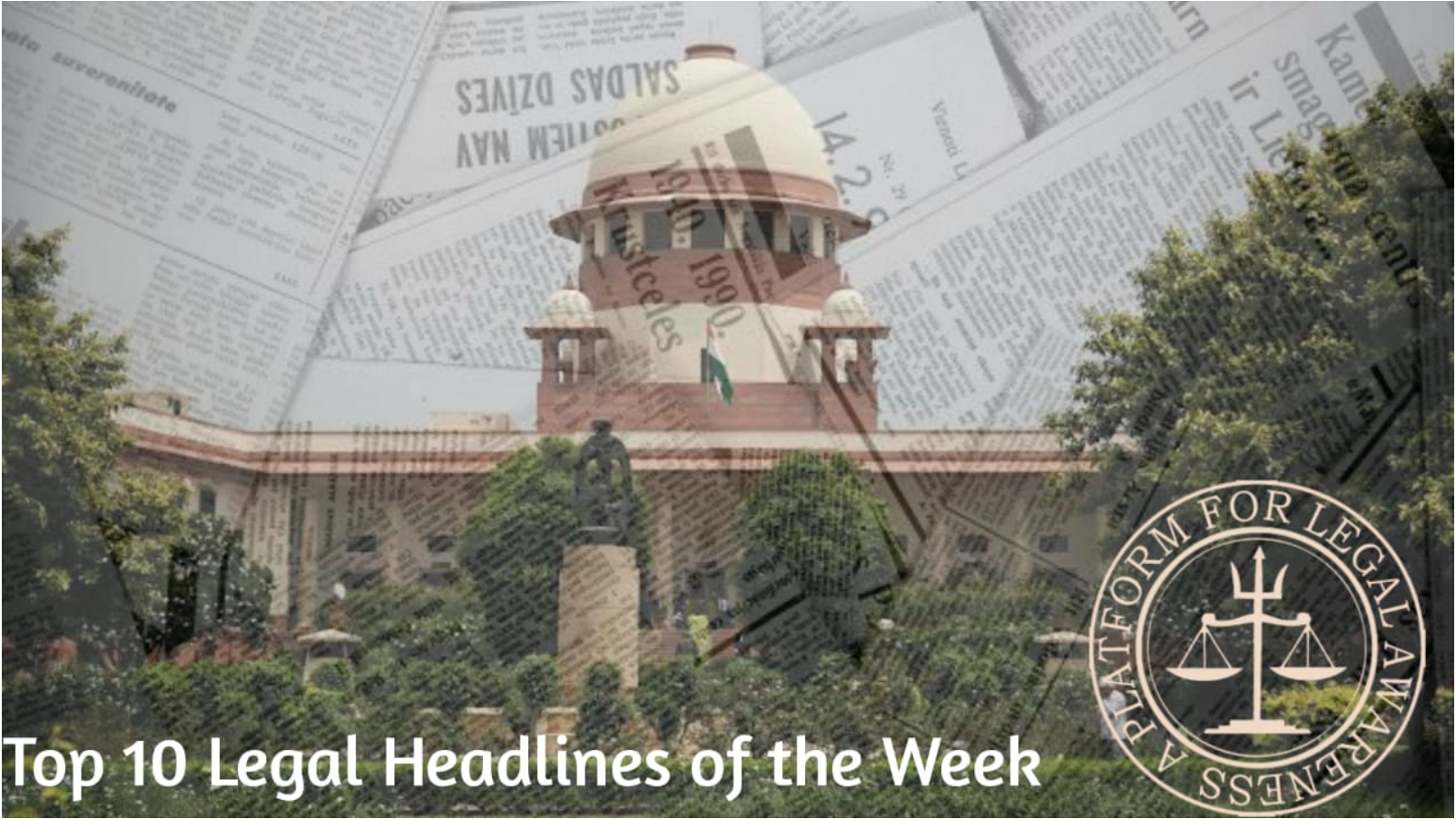1. Supreme Court Stays Release of ?350 Crore Benami Shares in Som Distilleries Case
The Supreme Court stayed a Madhya Pradesh High Court order that had allowed the release and sale of equity shares worth ?350 crore in Som Distilleries Breweries & Wineries Ltd.. These shares were suspected to be benami assets under the Prohibition of Benami Property Transactions (PBPT) Act. The apex court termed the High Court’s order as "perverse" and questioned how such a swap of attached benami assets was permitted. The stay ensures that the shares remain frozen pending further investigation or judicial review.
2. Supreme Court Seeks Uttarakhand's Response Over Alleged Dargah Demolition
The Supreme Court has asked the Uttarakhand government to respond to a contempt plea alleging the illegal demolition of a dargah in Dehradun. The petition claims that the site was a registered waqf property and was demolished by local authorities, despite the Centre having paused the implementation of the Waqf (Amendment) Act, 2025. The Court issued notice while noting the serious nature of the allegation, particularly since the property was protected under existing waqf laws pending further legal clarification.
3. Supreme Court Issues Fresh Guidelines for Senior Advocate Designations
The Supreme Court has introduced new guidelines for the designation of Senior Advocates, removing the existing marking system. Emphasising transparency and merit, the Court stated that the minimum requirement of 10 years of legal practice will remain unchanged. The revised framework aims to streamline the evaluation process by focusing more on a lawyer’s performance, expertise, and standing in the legal community, rather than numerical scoring. The move is expected to bring consistency and objectivity in conferring the prestigious designation across courts.
4. Supreme Court Upholds Legality of Volume-Based Discounts Under Competition Law
The Supreme Court has affirmed that volume-based discounts are permissible under the Competition Act, 2002. It upheld a 2014 ruling by the now-defunct Competition Appellate Tribunal, stating that such discounts do not amount to discriminatory pricing unless they are applied unequally to similar transactions. The judgment clarifies that offering incentives based on purchase volumes is a legitimate business practice and not anti-competitive unless proven otherwise. This decision brings legal certainty to businesses employing volume-based pricing strategies.
5. SC's Order on ED Must Apply Prospectively: Delhi High Court in Kejriwal Case
The Delhi High Court ruled that the Supreme Court’s directive requiring the Enforcement Directorate (ED) to furnish “reasons to believe” at the time of arrest will apply prospectively, not retrospectively. The Court made this observation while hearing a plea by Delhi Chief Minister Arvind Kejriwal. It further clarified that the enactment of the Foreign Exchange Management Act (FEMA) does not provide immunity from prosecution under the Indian Penal Code, reinforcing the principle that ED actions must be legally justified without overriding existing criminal law provisions.
6. Scam: Supreme Court Confirms MPID Act Takes Precedence Over Central Recovery Laws
In a significant decision related to the ?5,600 crore National Spot Exchange Limited (NSEL) scam, the Supreme Court ruled that the Maharashtra Protection of Interest of Depositors (MPID) Act will have overriding effect over central financial statutes like the SARFAESI Act, the Recovery of Debts and Bankruptcy Act (RDB Act), and the Insolvency and Bankruptcy Code (IBC). The Court held that the MPID Act, being a special legislation aimed at protecting the interests of depositors, would prevail in cases involving fraudulent defaults like that of NSEL, which 63 Moons Technologies promoted. This judgment affirms the priority of state action to safeguard public interest and recover dues for affected investors over claims by secured creditors or resolution professionals under central laws.
7. Supreme Court Criticises BJP Minister Vijay Shah for Remarks Against Colonel Sofiya Qureshi
The Supreme Court strongly criticised Madhya Pradesh Minister Kunwar Vijay Shah for his remarks against Colonel Sofiya Qureshi, who briefed the media on Operation Sindoor. The Court emphasised that ministers must act responsibly and avoid making statements that undermine the dignity of armed forces personnel. It expressed concern over the growing trend of political figures targeting officials performing their duties. The Madhya Pradesh High Court had also warned of strict action if an FIR was not registered, reinforcing that public office bearers are accountable for their words.
8. Supreme Court to Hear Interim Relief Pleas in Waqf Amendment Act Challenge on May 20
The Supreme Court has scheduled a hearing on May 20 to consider interim relief petitions against the constitutional validity of the Waqf (Amendment) Act, 2025. The bench noted the Centre’s assurance that it will not enforce the Act’s provisions until the appeals are decided. Advocates for petitioners argued they face imminent harm if enforcement proceeds, while the government maintained that pausing implementation protects the public interest. The court’s interim order will determine whether key provisions remain stayed pending a final judgment on the Act’s legality.
9. NLU Consortium Declares Revised CLAT-UG Results
The Consortium of National Law Universities has released the revised results for CLAT 2025 UG. This update follows the Consortium’s recent notification to the Supreme Court about its plan to publish the corrected results. Candidates can now check their updated scores on the official website. This step aims to address previous errors in the exam and ensure fair admissions across National Law Universities (NLUS) for the current academic year.
10. Supreme Court Demands Proof for Claim of Rohingya Refugees Being Thrown to Sea
The Supreme Court expressed scepticism over claims that the Indian government forcibly deported Rohingya refugees by abandoning them at sea. Justice Surya Kant questioned the petitioner, Colin Gonsalves, stating that petitions cannot be based on social media reports alone. The Court emphasised the need for concrete evidence before entertaining such serious allegations, signalling caution in handling unverified claims about government actions concerning Rohingya refugees.

